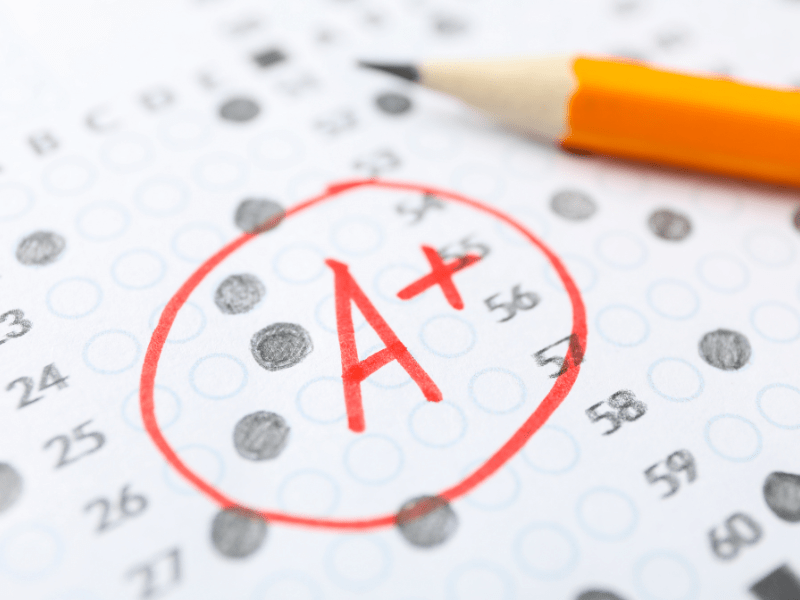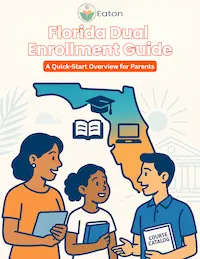Homeschool Florida: Your Ultimate How-to Guide
If you’re researching how to start homeschooling in Florida, you’ve come to the right place. In this guide, we’ll cover everything you need to know—from withdrawing your child mid-year to understanding scholarships, deschooling, transcripts, sports participation, and more. Whether you’re new to “Homeschool Florida” or you’ve dabbled in it before, we hope this in-depth, parent-friendly guide will set you on the path to success.
Why Consider Homeschooling in Florida?
Florida’s homeschool laws are relatively flexible, allowing parents the freedom to tailor their child’s education. In fact, Florida homeschooling has grown in popularity over the years due to:
- Personalized Learning: You control the curriculum, pace, and style.
- Schedule Flexibility: You set the timetable that fits your child’s natural rhythms.
- Wide Range of Resources: From local co-ops to online classes, there’s no shortage of materials to help you on your journey.
For detailed information on homeschool regulations in Florida, feel free to visit the Florida Department of Education’s official homeschool page.
1. Can I Remove My Child from School Halfway Through the Year?
Yes! Homeschool Florida law allows you to withdraw your child from a public or private school at any point during the academic year. Here are the basic steps:
- Submit a Notice of Intent: Send a letter to your local school district’s superintendent declaring your intent to homeschool.
- Keep Records: From day one, maintain a record of educational activities, reading lists, and samples of your child’s work.
If you’re looking for additional financial assistance and guidance on scholarships for mid-year homeschool transitions, check out our detailed post on How to Get a Step Up Scholarship for Florida Homeschoolers.

2. What Is Deschooling in Florida Homeschool?
Deschooling is the adjustment phase that happens when a child (and parent) leaves a traditional school setting and begins homeschooling. It’s an opportunity to:
- Unwind and Reset: Let your child relax and step away from rigid testing schedules.
- Discover New Interests: Encourage them to read books, explore hobbies, or engage in community activities without strict lesson plans.
- Ease into a Routine: Gradually introduce structured lessons as you both adapt to a new educational rhythm.
Deschooling can last anywhere from a few weeks to several months, and it’s a valuable period for helping children regain a love of learning.
3. What Subjects Are Required for Florida Homeschooling?
Florida law does not mandate a strict list of subjects for home education. However, many parents opt to align with subjects taught in public schools, such as:
- Language Arts / Reading
- Mathematics
- Science
- Social Studies / History
- Optional Enrichment: Foreign languages, music, art, life skills, or coding.
Staying organized can be as simple as maintaining a planner or digital spreadsheet for lesson plans and attendance. To learn more about what’s typically expected, visit our Homeschool Requirements in Florida: A Practical How-To Guide.
4. Who Creates the Homeschool Schedule in Florida?
One of the greatest perks of Florida homeschooling is the ability to create your own schedule. You’re in charge of:
- Daily or Weekly Routines: Plan lesson blocks or unit studies to fit your child’s learning style.
- Breaks and Vacations: Choose when to take longer holidays or short breaks throughout the year.
- Learning Paces: Allow more time for challenging subjects and accelerate easier ones.
Schedules can be as relaxed or as structured as you need. Some families thrive on color-coded timetables, while others prefer a looser, interest-led approach.
5. Do Homeschool Children in Florida Perform as Well as Traditionally Schooled Children?
Multiple studies suggest that homeschooled students often match or exceed the academic performance of their traditionally schooled counterparts. Factors contributing to this success include:
- One-on-One Attention: Parents can address learning gaps more quickly.
- Customized Curriculum: Students can explore topics in-depth based on interest.
- Flexible Assessment: Parents can use tests, portfolios, or projects to gauge understanding rather than relying solely on standardized tests.
For further reading on national homeschool performance trends, you can visit the Home School Legal Defense Association (HSLDA) research page.
6. Creating the High School Transcript and Its Validity
As the homeschooling parent, you are responsible for creating and maintaining your child’s high school transcript. This document should include:
- Courses Taken: List every subject your child studied, along with a brief course description if possible.
- Grades and Credits: Assign grades and credits based on hours of study or mastery.
- Overall GPA: Calculate a cumulative GPA, just like a traditional school transcript.
Is it valid for college admissions? Yes. Homeschool transcripts are widely accepted by colleges across the country. Universities often appreciate the self-discipline and independent thinking that come with a home education background. Some may request SAT or ACT scores, recommendation letters, or a portfolio of work, but this is standard for many applicants.

7. College Acceptance Rates for Homeschool Students
Wondering about Florida homeschool students and college acceptance rates? Studies indicate that homeschoolers have acceptance rates comparable to, if not higher than, public school students. Admissions officers frequently note that these students are self-motivated, well-prepared, and adaptable—qualities colleges value.
If you want extra assurance for rigorous academics, consider enrolling your child in an accredited online homeschool class. This can bolster their transcript and confidence in advanced or specialized subjects.
8. Difference Between UA and PEP Step Up Scholarships for Homeschool Florida
The Step Up for Students organization offers several scholarships that can make Florida homeschooling more affordable:
- UA (Unique Abilities): Tailored for children with special needs, covering therapies, specialized materials, and certain educational resources.
- PEP (Personalized Education Plan): Provides funds for students who need a more individualized approach but do not necessarily have an official diagnosis.
For a deeper look at eligibility and application steps, see our article on How to Get a Step Up Scholarship for Florida Homeschoolers.
9. What Happens to My Child’s IEP If They Return to Public School?
An Individualized Education Program (IEP) is managed by public schools. If you decide to return your child to a traditional setting after homeschooling:
- Keep All Records: Retain copies of the last IEP and any formal assessments.
- Expect a Reevaluation: The school may reassess your child to see if they still qualify for certain services.
- Adjustments or Continuation: The IEP may continue as-is, be modified, or discontinued based on current needs.
10. Can Homeschool Florida Students Participate in Local Public School Sports or Activities?
Yes! Florida permits homeschoolers to join public school extracurricular activities, often referred to as “Tim Tebow law.” This law gives homeschool students the chance to participate in:
- Competitive Sports: Football, basketball, soccer, track, etc.
- Clubs and Societies: Band, drama, robotics clubs, and more.
You’ll generally need to provide academic progress reports or evaluations to prove eligibility. Check the Florida High School Athletic Association (FHSAA) site for the most current regulations and forms.

Ready to Start Your Florida Homeschool Journey?
Homeschooling in Florida offers a unique blend of freedom, flexibility, and access to resources. Whether you’re starting mid-year, fine-tuning your child’s high school transcript, or scouting out extracurricular activities, there’s plenty of support available. Here’s your quick action plan:
- File Your Notice of Intent: Make it official with the local school district.
- Deschool with Purpose: Allow time for adjustment.
- Plan Your Curriculum: Choose materials or create your own.
- Track Progress: Maintain a portfolio of work, grades, and accomplishments.
- Join Homeschool Communities: Local co-ops, online forums, and support groups can be invaluable.
- Explore Online Classes: Check out our class selection for specialized courses tailored to Florida homeschoolers.
Homeschool Florida can be a life-changing experience for your child, offering a personalized education and opening doors to college and beyond. With the right planning and resources, you’ll find this journey both rewarding and enriching—ensuring your child thrives academically, socially, and emotionally.
Final Thoughts on Homeschooling in Florida
As more families discover the benefits of Florida homeschooling, it’s clear this educational path can be both fulfilling and academically rigorous. Whether you’re motivated by concerns about local school environments, the need for a more individualized approach, or the desire for a flexible schedule, homeschooling in Florida has never been more accessible.
Take the first steps confidently: file that notice of intent, plan your days, track your progress, and engage with the supportive Florida homeschool community. Before you know it, you’ll be celebrating your child’s milestones and successes, all from the comfort and flexibility of your chosen learning environment.



